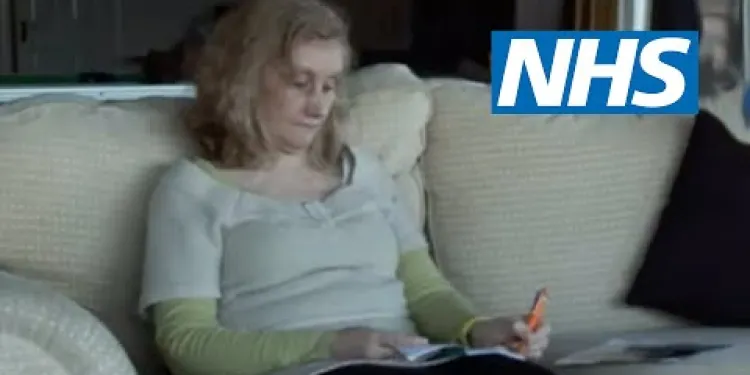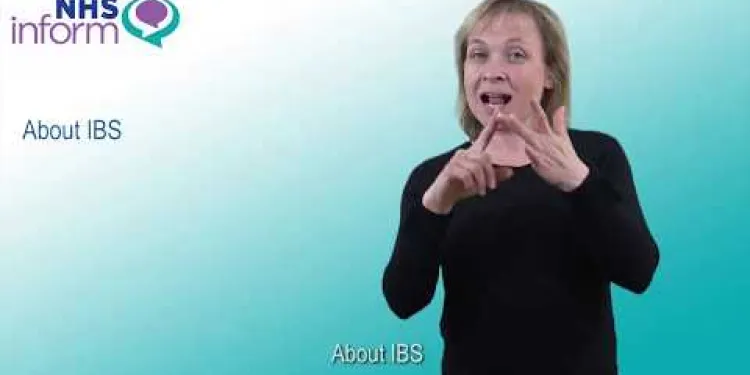Find A Professional
Fibromyalgia: Suzanne's Story | NHS
Introduction to Fibromyalgia
Fibromyalgia is a long-term condition that causes pain all over the body. It can significantly affect the quality of life of those who suffer from it. In this story, we will explore Suzanne's experience with fibromyalgia and how she manages the condition with the support of the NHS in the United Kingdom.Suzanne's Initial Symptoms
Suzanne first began to experience symptoms in her late 30s, starting with persistent body aches and extreme fatigue. She initially shrugged it off as normal tiredness or the effects of a busy lifestyle. However, the pain gradually became more intense and widespread. Simple tasks like getting out of bed or walking up the stairs became increasingly difficult.Seeking Medical Help
Recognizing that her symptoms were not improving, Suzanne decided to consult her GP. After a series of tests and specialist referrals, she was diagnosed with fibromyalgia. It was a relief to finally put a name to her symptoms, though she also felt overwhelmed by what the future might hold.Treatment and Management
Suzanne's treatment plan was developed with her GP and a rheumatologist, focusing on a combination of medication, physical therapy, and lifestyle changes. She is prescribed pain relievers and antidepressants to manage her symptoms. Physical therapy sessions help to improve her mobility, while a regular exercise routine, recommended by her physiotherapist, helps to reduce stiffness and improve her overall well-being.NHS Resources and Support
The NHS provides a range of resources and support for people with fibromyalgia. Suzanne found the NHS online resources particularly helpful. She also joins support groups, both online and in-person, connecting with others who understand what she is going through. These platforms offer emotional support and practical advice on managing daily challenges.Living with Fibromyalgia
Living with fibromyalgia has taught Suzanne to listen to her body and not to push herself too hard. She has learned to pace her activities and incorporate rest breaks into her day. With the ongoing support of her healthcare team and community, Suzanne has managed to find a balance that allows her to enjoy life despite her condition. She continues to advocate for more awareness and understanding of fibromyalgia, hoping to help others who might be struggling.Conclusion
Suzanne's story highlights the importance of early diagnosis, comprehensive treatment, and the support available through the NHS for those living with fibromyalgia. While it is a challenging condition, proper management and a strong support system can significantly improve the quality of life for sufferers in the United Kingdom.Fibromyalgia: Suzanne's Story | NHS
Introduction
Fibromyalgia is a long-term condition that causes pain all over the body. It's particularly challenging as it affects each individual differently. Here, we explore the journey of Suzanne, a resilient woman from the United Kingdom, who has been living with fibromyalgia and learning to manage her symptoms with support from the NHS.
Suzanne's Diagnosis
For years, Suzanne struggled with persistent fatigue, widespread pain, and difficulty sleeping, which led to confusion and frustration. After various consultations and tests, doctors at her local NHS clinic diagnosed her with fibromyalgia. The diagnosis was overwhelming, yet it finally provided an explanation for her symptoms.
Managing Symptoms
With the help of NHS healthcare providers, Suzanne developed a comprehensive management plan. This included medication to alleviate pain, as well as cognitive behavioural therapy sessions to address mental health challenges, such as stress and anxiety, that often accompany fibromyalgia.
Support and Community
Suzanne discovered local support groups where she found comfort in sharing her experiences with others facing similar challenges. These community resources, often recommended by her NHS care team, play an essential role in managing the emotional impact of fibromyalgia.
The Role of Lifestyle Changes
In consultation with her NHS physiotherapist, Suzanne incorporated gentle exercises, such as swimming and yoga, into her daily routine. These activities improved her mobility and reduced her pain levels. Additionally, she focused on maintaining a balanced diet and ensuring adequate rest.
Looking to the Future
Suzanne remains optimistic, knowing her NHS care team continues to support her journey. Her story highlights the importance of personalised treatment plans and the vital role both medical and community resources play in managing life with fibromyalgia in the UK.
For detailed resources and support, the NHS website offers comprehensive guides and tools for those living with fibromyalgia.
Frequently Asked Questions
What is fibromyalgia?
Fibromyalgia is a long-term condition that causes pain all over the body, along with other symptoms such as extreme tiredness and difficulty sleeping.
Who is Suzanne mentioned in the story?
Suzanne is a patient with fibromyalgia who shares her personal experiences living with the condition on the NHS website.
What are some common symptoms of fibromyalgia?
Common symptoms include widespread pain, fatigue, difficulties with sleep, headaches, and problems with memory and concentration.
How is fibromyalgia diagnosed?
Fibromyalgia is usually diagnosed based on symptoms, a physical exam, and ruling out other conditions since there is no specific test for it.
What can trigger fibromyalgia symptoms?
Stress, lack of sleep, physical activity, and certain weather conditions can trigger or worsen fibromyalgia symptoms.
Is there a cure for fibromyalgia?
Currently, there is no cure for fibromyalgia, but symptoms can be managed through a combination of medication, lifestyle changes, and therapies.
What treatments are available for fibromyalgia?
Treatments include pain relievers, antidepressants, physical therapy, exercise, and cognitive behavioral therapy.
How does fibromyalgia affect daily life?
Fibromyalgia can make daily activities challenging due to chronic pain and fatigue, impacting work, social life, and emotional well-being.
Can fibromyalgia lead to psychological issues?
Yes, living with chronic pain and fatigue can lead to anxiety and depression in some individuals with fibromyalgia.
Are there support groups for people with fibromyalgia in the UK?
Yes, there are various support groups and charities in the UK offering advice and support for people with fibromyalgia.
Can lifestyle changes help with managing fibromyalgia?
Adopting a healthy lifestyle, including regular exercise, a balanced diet, and ample rest, can help manage fibromyalgia symptoms.
What role does diet play in managing fibromyalgia?
While there's no specific fibromyalgia diet, a healthy, balanced diet can help reduce symptoms and improve overall well-being.
Why is it important to educate others about fibromyalgia?
Increasing awareness helps reduce stigma and misunderstandings, enabling better support and accommodations for those affected.
How can workplaces support employees with fibromyalgia?
Workplaces can provide flexible schedules, ergonomic assessments, and understanding attitudes to help accommodate employees with fibromyalgia.
What advice does Suzanne offer to those newly diagnosed with fibromyalgia?
Suzanne advises learning as much as possible about the condition, seeking support, and finding a management strategy that works for you.
Useful Links
- Ergsy carfully checks the information in the videos we provide here.
- Videos shown by Youtube after a video has completed, have NOT been reviewed by ERGSY.
- To view, click the arrow in centre of video.
- Most of the videos you find here will have subtitles and/or closed captions available.
- You may need to turn these on, and choose your preferred language.
- Go to the video you'd like to watch.
- If closed captions (CC) are available, settings will be visible on the bottom right of the video player.
- To turn on Captions, click settings .
- To turn off Captions, click settings again.


